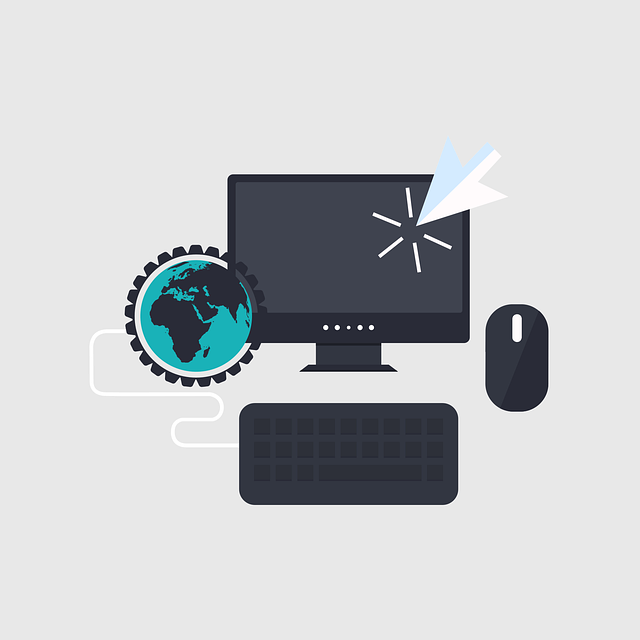AI solutions for automotive repair diagnostics are transforming garage operations by offering efficient, precise, and cost-effective methods for diagnosing and fixing vehicle issues using machine learning algorithms. These systems leverage sensor readings, historical records, and manufacturer guidelines to provide consistent results, reduce human error, and adapt to new vehicle technologies. By streamlining processes and focusing on complex tasks, AI enhances the customer experience. Implementing these tools offers significant advantages in customer service, but initial costs, training needs, and maintaining personalized interaction are key challenges to address for a successful transition that benefits both customers and shop operations.
In today’s digital age, automotive shops are exploring innovative ways to enhance customer service. AI solutions for automotive repair diagnostics offer a game-changing approach, revolutionizing how workshops interact with clients. This article delves into the world of AI customer service strategies, examining its benefits and challenges. We’ll explore best practices to implement AI effectively, improving efficiency and client satisfaction in automotive shops. Understanding AI’s potential can transform traditional services, ensuring folks receive swift, accurate repairs.
- Understanding AI Solutions for Automotive Repair Diagnostics
- Implementing AI in Customer Service: Benefits and Challenges
- Best Practices for AI-Enhanced Automotive Customer Service
Understanding AI Solutions for Automotive Repair Diagnostics

AI solutions for automotive repair diagnostics are transforming how garages and workshops operate, offering efficient, accurate, and cost-effective methods for identifying and resolving vehicle issues. These technologies leverage machine learning algorithms to analyze vast amounts of data from various sources, including sensor readings, historical service records, and manufacturer guidelines. By integrating AI into their workflows, automotive shops can significantly enhance diagnostic capabilities, leading to faster turnaround times and improved customer satisfaction.
Unlike traditional methods relying heavily on human expertise, AI-driven diagnostics provide consistent and reliable results, minimizing the risk of human error. Moreover, these systems can continuously learn and adapt as new vehicle models and technologies emerge, ensuring that diagnostic tools stay up-to-date with industry advancements. This not only streamlines repair processes but also empowers automotive professionals to focus on more complex tasks, ultimately elevating the overall customer experience.
Implementing AI in Customer Service: Benefits and Challenges

Implementing AI in customer service for automotive shops offers significant benefits, especially in streamlining diagnostic processes. With advanced AI solutions for automotive repair diagnostics, shops can provide faster and more accurate service. These solutions can analyze vast amounts of data to identify patterns, enabling technicians to make informed decisions quickly. By automating routine tasks, AI frees up human resources to focus on complex issues, ultimately enhancing customer satisfaction.
However, challenges exist when integrating AI into customer service. Initial setup costs and the need for specialized training can be deterrents. Additionally, relying too heavily on AI may lead to a lack of human interaction, which is vital for building trust and understanding intricate customer needs. Balancing automation with personalized service requires careful consideration and strategic implementation to ensure a seamless transition that benefits both customers and automotive shop operations.
Best Practices for AI-Enhanced Automotive Customer Service

Implementing AI solutions for automotive repair diagnostics can significantly enhance customer service in several ways. Best practices include integrating natural language processing (NLP) chatbots to provide immediate, 24/7 support for common queries and basic troubleshooting. These bots should be trained on a vast dataset of car models, symptoms, and solutions to offer accurate and relevant recommendations. Additionally, leveraging machine learning algorithms to analyze historical service data can help predict customer needs, allowing shops to proactively offer services before issues arise.
For more complex cases, AI-powered diagnostic tools can streamline the process by identifying potential problems from sensor data, images, or even video inputs. This not only reduces the time mechanics spend on diagnostics but also increases accuracy. Efficient workflows enabled by AI ensure faster turnarounds, happier customers, and improved operational efficiency for automotive shops.
AI solutions for automotive repair diagnostics offer a transformative opportunity for customer service in the automotive industry. By implementing these technologies, shops can streamline processes, improve efficiency, and enhance client experiences. While challenges exist, such as initial investment and data privacy concerns, the benefits are significant. Adopting best practices, including providing clear transparency to customers and ensuring robust data security protocols, can lead to a competitive edge and a more prosperous future for automotive businesses.
